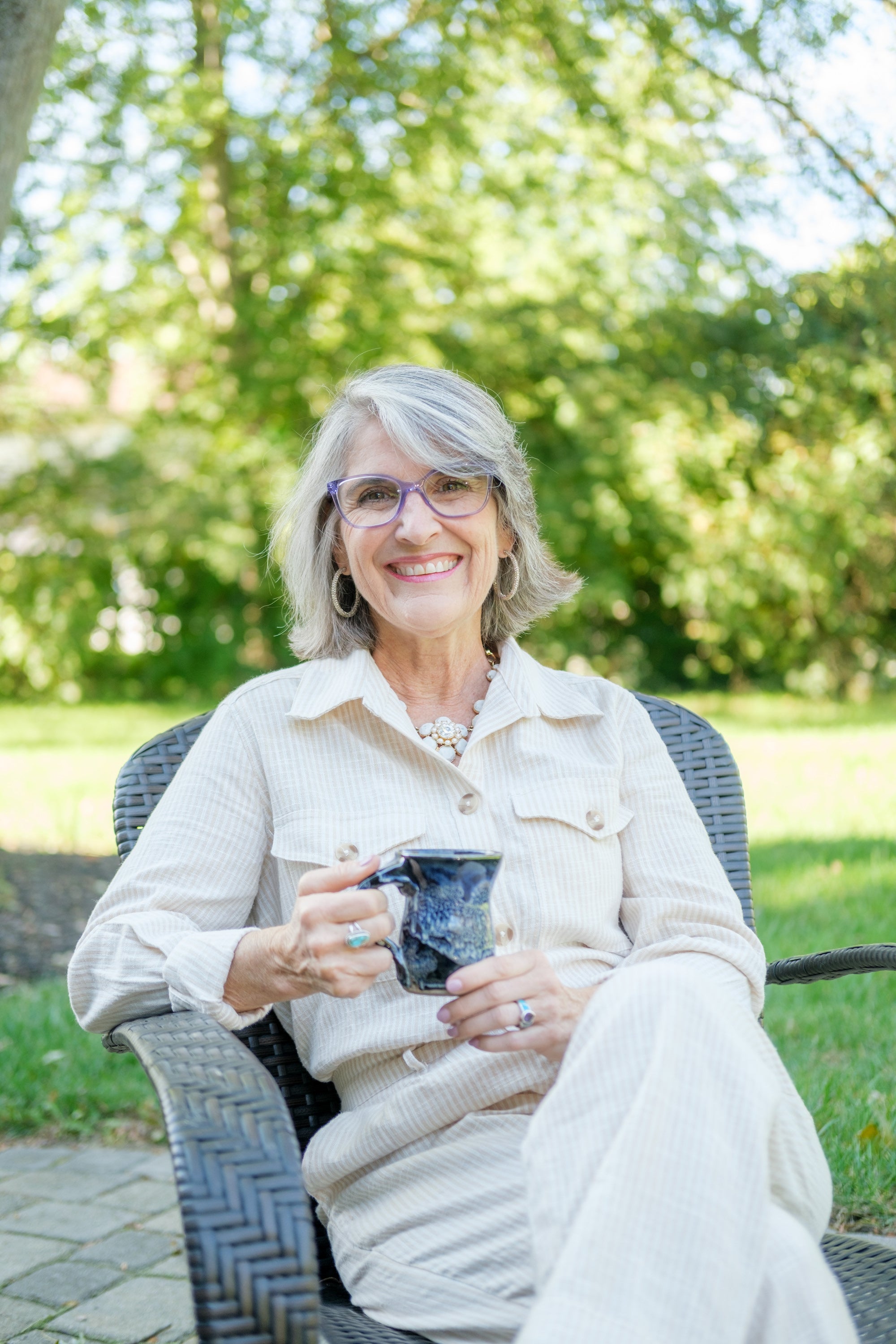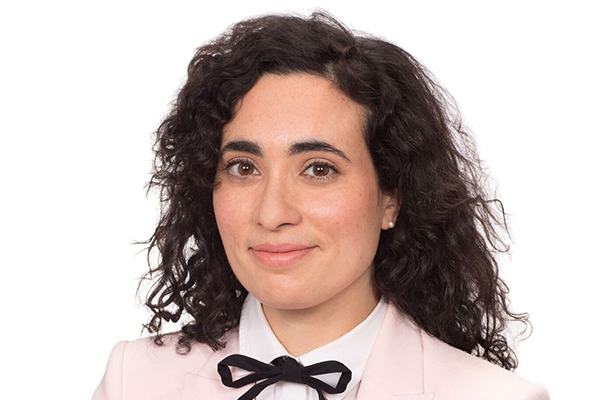Photo by Lucy Walters
Author: Benjamin Lorr
Author Bio:
"Benjamin Lorr is the author of Hell-Bent, a critically acclaimed exploration of the Bikram Yoga community that first detailed patterns of abuse and sexual misconduct by guru Bikram Choudhury. Lorr is a graduate of Montgomery County public schools and Columbia University. He lives in New York City."
1. Your book, “The Secret Life of Groceries” is a fascinating and well researched story about the grocery store industry. What made you want to tell this story?
I've always been fascinated by grocery stores! I'll wander them on vacation, stroll their aisles at home when bored. At the risk of getting all woo, they are these mystical hubs in our world, jammed with an abundance of options unknown in the history of the human project, with prices that get lower every year while the quality of the food inside keeps getting higher. And we take them almost completely for granted. A miracle we regard as a birthright! I wanted to understand how they function.
And it turns out, when you scratch the surface, it takes immense power to maintain this miracle. And when you look at the source of that power, you'll find both true ingenuity and horrible suffering. In this way - and not to be too grandiose - the grocery store becomes a little microcosm for America itself.
2. What was the most shocking discovery you learned while researching and writing this book?
The system of debt peonage that increasingly defines modern trucking was pretty shocking. I had never seen it reported before and was unprepared for what I found. I had a mental image of the trucker frozen in the 1970s: this scruffy-but-lovable middle class blue collar teamster. Instead unions are dying, drivers are disposable and treated as such, intensely vulnerable and accruing debt rather than earnings.
Many called their industry "sharecropping on wheels," a description that strikes me as wholly accurate. But honestly, I had misunderstandings at just about every level of the system. From the ways a chain like Trader Joe's "deconstructs" the supply to find value, to the changes in minimum wage jobs on the retail floor, to the fact that most products on the shelf are competing less against other similar brands than against the store itself (which makes money off their placement like a landlord leasing space), to the fact that human bondage and modern slavery are endemic to the bottom of commodity chains around the world.
3. You got the chance to talk to Trader Joe’s founder himself Joe Coulombe. From talking with him, what made him successful and what’s something unique about his stores/story you didn’t know prior to meeting with him?
Joe had a really special mind. I did not set out to glorify him or Trader Joe's; in fact when I started exploring the chain, I was pretty convinced there was something there that was too good to be true, almost sinister. But I was wrong and after I talked to enough people, allowed myself to be convinced. Joe's had this really rare combination of traits.
He was extremely intelligent, extremely curious, and he believed in the power of non-judgmental observation, i.e. that you could look at the world and understand how it might change. And of course he combined that with a confidence to execute and a sense of humanity and wit. The result was a chain that bucked every traditional notion in the grocery world.
In the early 1960s, Joe saw that higher education and travel were about to explode, and that homogeneity and mass consumption were waning. He slashed his offerings and created a private label line to serve the customers he believed would emerge from these trends. And he did this by paying his employees top dollar, empowering his buyers at every turn to find products his new customers would want. His chain's success speaks for itself and as a testament for his very unique mind.
4. You also exposed a lot about the processing and handling of foods and many readers have said that they will never be able to look at supermarkets the same ever again. How has your supermarket experience changed, if any, since writing this book?
My shopping experience hasn't changed much. One of my biggest takeaways in the book is that although there is great suffering in our food system, exercising consumer choices - i.e. buying the exact right product or "voting with your dollars" - isn't a promising avenue for reform. The system is too good at co-opting our good intentions and delivering us the pleasure of virtue without ensuring actual reform.
To solve the problems in the system, we don't need to shift our consumption habits as much as our political ones. Writing the book helped me understand the importance of unions, of empowered labor, of trade treaties that globalize enforcement teeth to compliment free trade. I believe advocating for those reforms is far more powerful than changing your shopping habits or buying the "right" product.
5. What’s something about the supermarket industry that didn’t make the book but was fascinating to you?
Ay, the hardest part of the book to cut was an interview I did with a labor broker in Thailand. This was a man who bought Burmese migrants out of prison and sold them to ship captains as slaves. He was described to me as very powerful, the biggest gangster in the local Burmese community, extremely dangerous, and yet when I finally got in contact with him, he was tired, poor, living in a shack, and his personal story was shockingly similar to the migrants he was buying and selling.
These were all men at the bottom rung of our food system, and I felt like there was a powerful message about the nature of exploitation in his story. But the material was just one step too removed for me to ultimately include.
6. You have delved into some interesting topics such as Bikram Yoga with your book “Hell Bent” and now groceries in this book. What’s next for you as a writer?
I like to say I'm hard at work on a trilogy on middle class American obsessions. Yoga! Groceries! And... Well, I'm still being coy about what's coming next because I've just begun research, but, at least in my brain, it's all aligned.
7. Overall, what was your writing process like?
I have about four balls I throw up in the air at once. Probably the first and most important is what people have been calling "immersive journalism." Everything I write is anchored by first-person present-tense experience, meaning getting as close to the source material as possible, preferably by doing it myself or watching someone else do it while standing beside them for months.
For Hell-Bent and yoga that meant doing absolutely gobs of yoga, hours and hours of it, multiple teacher trainings, yoga competitions, six days a week at the studio, both to understand the Bikram community and to get close to Bikram Choudhury, the guru at the heart of the book. In Groceries, that meant getting jobs at retail chains like Whole Foods, traveling to Thailand to speak to migrants myself, driving around with truckers. But then there are the other balls.
First person experience is pretty limited. I think it is great for the reader, but I have no illusions that it produces anything accurate or encompassing. So simultaneously, I'm trying to talk to all the real experts in the field, whether academics or trade professionals.
And then heading into the library to read as much as I can about the subject so I know what to ask the real experts. And finally, of course, I'm writing continuously. Sometimes at my desk, but mostly in the field, very impressionistically with detailed notes that get massaged into the first person passages you read in the book. Plus a lot of housecleaning, long walks, miscellaneous procrastination, general irritability, self-doubt, and moments of euphoria. That's the process!
8. What do you hope readers takeaway from this book?
I want them to be awed by the grocery industry. But a biblical Old Testament type of awe that is really more a mix of humility, fear, respect, and inspiration to do better in the face of magnificent power. In the subtitle, I call the grocery industry a miracle for a reason. It is well considered and I think by actually reflecting on the miraculous nature of the system we have a chance at reforming ourselves and creating a better world.
9. What’s the best book you have read so far this year?
I'm currently reading the Gulag Archipelago and am blown away. I think I expected it to be work, but Solzhenitsyn has such a big voice, moving from almost snarky to raw to grandly philosophical in just a few paragraphs. That said, my favorite book is always whatever I'm reading. If I dip a little further back, Terry Teachout's excellent biography of H. L. Mencken, The Skeptic, also stayed with me.
10. What is your best advice for getting over writer’s block?
Just sit down and do it. You will have slow days and you will have productive days. That's all okay. For non-fiction, I always tell blocked writers - including myself - to go back and listen to your source materials again. Often the missing pieces are there.
11. What’s the best advice you have ever received on happiness?
Just keep trying to figure out what works for you. Low dose shrooms? Meditation? COQ10? Cognitive behavioral therapy? Leaning into obsessive work? Listening to messages from the Dog Star? Intense service to others? Gardening? Don't worry about what works for anyone else except as inspiration, then quiet the haters, internal and external, and just do you. It is after all the only thing you can do.
Places To Find More From This Author:
Facebook: Benjamin Lorr
Twitter: @benjaminlorr
Website: www.benjaminlorr.net
Get Your Copy of The Secret Life of Groceries Today!









1 comment
Great interview guys! Excited to read this gem!